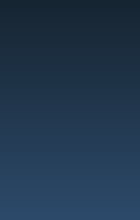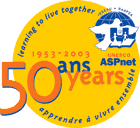| |
Agenda 21 NOW! 2000-2016

There have taken place seventeen annual Internet conferences from 2000 to 2016, a continuous chain of conferences on sustainability every year in spring. Here is a brief overview:
Our first conference took place on 5 June, 2000.
Despite a number of technical
problems, e.g. a thunderstrom which damaged our file server, it was a
great
success,
and it inspired and motivated us for a second version.
The second conference on 22 March, 2001, on World Water Day, was much
different and in many ways
much better than the first one. With more than three times as many
participants (more than 1,200) from nearly fifty countries the
discussions were
much more intense, more serious. Moreover we had a really professional
technical
support from CEMA AG (an IT company in Mannheim, Germany, in cooperation
with CISCO Systems).
The third conference took place on 25 April, 2002, with more than
1,900 students
from sixty countries. Its theme was 'Floods and Deserts', the idea was
to
discuss about the possible consequences of the global warming in the
21st
century. For the first time we had experts who discussed with
the students, six experts from five countries, among them
Professor Bert Bolin from Stockholm University, Sweden, former
chairman of the
Intergovernmental Panel on Climate Change (IPCC).
The fourth conference, its theme was 'Borders and Diversity - Can we
live
together sustainably in a globalising world?', was on 3 April, 2003,
during
the war in Iraq. Never before in our internet conferences had there
been
such
intense discussions among students of different nations. Serious
discussions
with quality arguments instead of (understandable) pure emotion, thank
you,
participants!
For the fifth conference on 'Focus on Food - Shape (y)our Future NOW!'
we introduced 'Agenda 21 NOW! Interactive',
interactive
pages in a wiki style that may be edited by all registered
participants. And the
number of schools working on the content of Agenda 21 NOW! increased
to six in
four European countries. Again during the conference the number of
written contributions
reached a new record despite a 45 minutes total system crash during
the best conference time
(morning hours in Europe).
In the sixth conference on 10 February, 2005 on 'Looking at Lifestyle
21 - Sustainable Consumption and Recycling?' we kept the idea of
having our preparatory wiki - Agenda 21 NOW! Interactive
- and continued cooperation with CEMA AG in Mannheim - as well as with
UNESCO ASPnet Germany and, of course, with the Baltic Sea Project!
The seventh conference on 27 April, 2006, was on DEMOCRACY. The exact
title was: 'DEMOCRACY - Participate in the Process ...', with intense
discussions on democracy in a family, in a classroom as well as questions
on democracy on a global level. And, for the first time, we had a
conference breakdown for several hours due to a difficult failure in the
communication software. This was sad for a number of participants who had
hoped for good conferencing - fortunately it has yet been the only bigger
system failure in one of our conferences.
'One World, One Globe - Globalisation ... near YOU?' During the eighth
conference on 9 May, 2007, no technical problems at all
occurred. This year, for the first time, the whole technical part, including
the webserver, was in the hands of Agenda 21 NOW! team members.
See the full report on the 2007 conference
here
.
In 2008 our conference took place on 8 May - this has shown to be a bad day
for conferencing, since 8 May is a celebration day in a number of countries,
marking the end of World War II in Europe in the year 1945. Therefore,
in 2008 the number of
participants was lower than it had been in the years before.
Nevertheless the theme (Transport and Communication - Developing the 21st Century)
was important and taken serious by the registered participants. We had great global
discussions in the 2008 conference,
and we successfully invented two new elements into the conference:
a contribution rating (making it easier for the participants to see which
written contributions many people agree or disagree to) and the discussion
and adoption of a resolution.
Read the full 2008 report.
The 2009 conference, held on 23 April, for the first time was a conference on education. We
had called the theme 'Education
is Future - What is the Future of Education?'. During this conference we found out that the
ideas about what education should be like within twenty years from now are more or less the
same in many countries - students in different corners of the world have very similar ideas
about what good education is, how education for sustainable development should be like.
The report 2009
as well as the 2009 resolution
are available.
The 2010 conference was about the ongoing global warming, the title was: Sustainable global warming - really? It took place from 28 April 16:00 UTC until 29 April 16:00 UTC, hence for the first time we had shifted the beginning from 00:00 UTC, which is in the middle of the night in Europe, to a the European early evening, hoping that this period would also fit to the majority of the participants. It obviously did, in terms of participant numbers we had a more intense and more interesting conference than in the year before. Here is a link to the resolution 2010.
2011 was a very special conference. As in 2010, we had been cooperating with five other schools in five European countries in a two-year European project on global warming, with the final conference taking place during the weekend before the Agenda 21 NOW! internet conference - a true challenge for all of us.
The conference 2011 took place on 14 April from 00:00 to 24:00 UTC on Human Diversity - Challenges and Chances. Discussing issues of cultural, political and religious diversity on various levels.
. Here is a the link to the resolution 2011.
In 2012 we worked on Revolution - Evolution - Change: Transitions in the 21st century's societies, being inspired by the Arab spring, knowing that all our societies are undergoing rapid changes and that young people hopefully are aware of them.
The 2013 conference, taking place on 18 April 2013, was the first one to be held in a totally collaborative way by two schools: Humboldt-Gymnasium in Trier, Germany, and Kurt-Tucholsky-School Flensburg, in the northernmost tip of Germany, where Martin Jarrath, the coordinator, had moved to in the meantime. The 2013 theme was Humanity depicts poverty, poverty depicts humanity? A question of cause and a quest for solutions. Not an easy one, but 430 participants thought this was interesting enough to register for it.
In 2014 we went for something extraordinary: Our idea was working with stereotypes and prejudices. Yes, you could call this a typical European idea, and it was, because at that time we were working in an international project involving seven schools from five European countries on exactly this: on stereotypes and prejudices in Europe. Therefore, we thought it was a good idea making this a worldwide discussion. And it turned out to be a really interesting discussion.
The year 2015 animated us thinking 35 years ahead to the year 2050. Many of the younger participants at an Agenda 21 NOW! conference are around 15 years old. The question to be talked about during the conference was: What will the world be like at the time, when today's 15-year-olds are 50, i.e. in the year 2050. And moreover, what can we do to help it's a good world by then, a more sustainable one?
In 2016, for the first time during the seventeen Agenda 21 NOW! conferences, we talked about politics. Not as the only topic, but as one out of two. Again, this conference was an experiment. Not in a technical way (the technology will be the same one as in the years before), but in terms of content.
Througout the Agenda 21 NOW! project period from 2000 to 2016, we permanently worked on the improvement of the quality of discussions. Over the years it developed a good tradition that our international
moderators passed a special
training for this interesting challenge.
Besides all this development, some basics remained unchanged:
The Agenda 21 NOW! International Internet Conference was intended
for teachers and students who want to work internationally, who want
to use the
Internet for a new way of communication without having to care
for technical details. It just worked, even on ten year old computers
and with
a slow modem.
Here are some articles about former Agenda 21 NOW! conferences:
The 2009 report
The 2008 report
The 2007 report
Agenda 21 NOW! 2004
and 2005
The Agenda 21 NOW!
story (a making of, written in 2003)
An
article on the 2001 conference (with pictures)
An overview about all the
conference themes since the first conference 2000
Participants by country during the conference 2014

(c) Agenda 21 NOW! 1999-2016.We are not responsible for the content of linked pages.
E-mail to webmaster: webmaster@agenda21now.org
|









